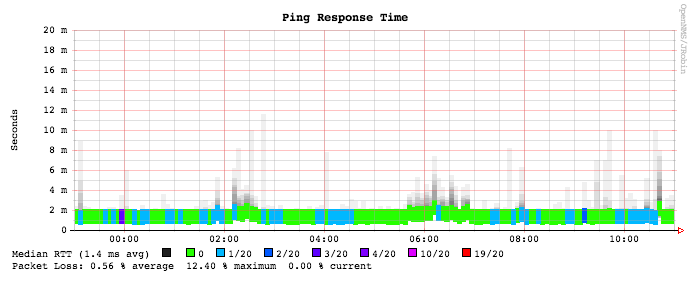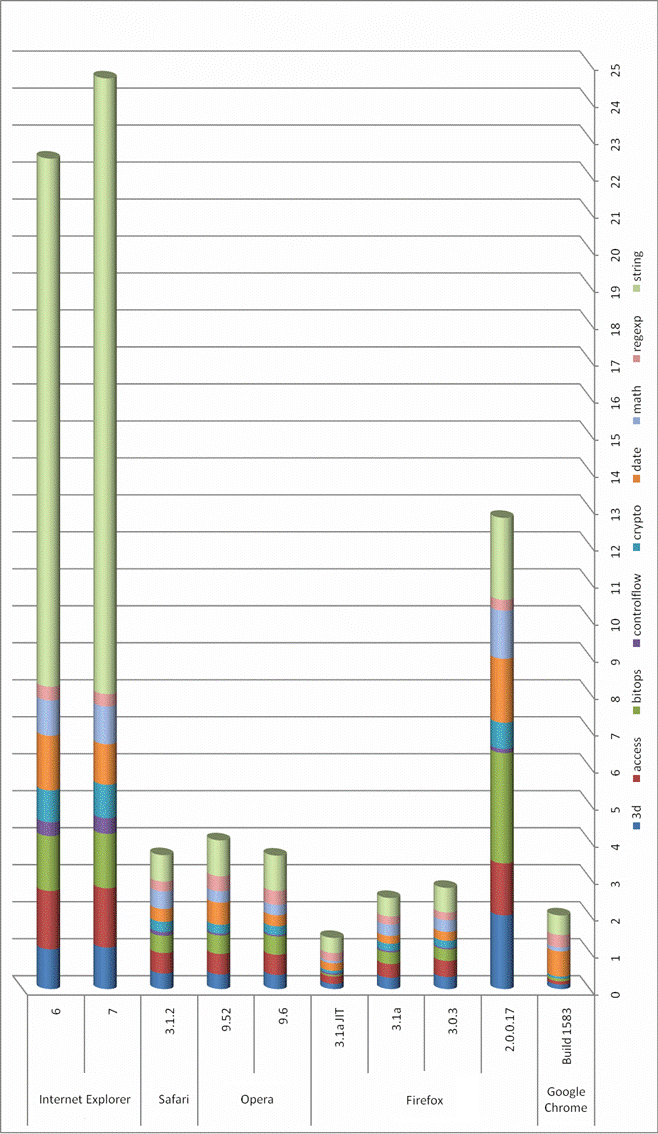CPanel – Plesk – Open Source Alternatives?
November 26, 2008
Many people that are in the web hosting business (Ok, most of them “one server hoster”) are talking about CPanel or Plesk and that they can’t do it without them. But I think that this is not necessary true ,as there are open source alternatives.
- The best one I know is ISPconfig. They are reported to have a good support and great howto’s.
- There is also DTC, but it is quite unknown to me,
- There’s also WEBcp.
- Also such programs are SysCP (which is supported by Hetzner and DomainDiscount24) and
- VHCS.
I hope this list helps someone and please at additional programs I mist in the comments. Thx.
Update: Take a look at this comparison.
Do you know SmokePing or StrafePing?
November 25, 2008
The word part “ping” leads you to ICMP packages, Ok – but what is special with Smoke or Strafe Ping? Basically they send multiple ICMP echo requests on block to a given target on block and stores the response-time of each as well as the packet loss. SmokePing is the inventor of this technique and consists of a daemon process which organizes the latency measurements and a CGI which presents the graphs.
Here are some screenshots from the authors homepage:


StrafePing is a feature in OpenNMS, which is a network management system and you can activate it for the nodes it monitors. Here is a screenshot for this too:

secure file uploading with scponly
November 23, 2008
If you’re administrating Linux servers you may need someone or some script to copy files onto your server. You could now install a special service like a ftp server or you could use a normal ssh user for this. The problem with the first is that you need an extra service which adds complexity and also provides an additional attack vector. The problem with the normal ssh user is that you provide the script or user functionally on your server that he/it does not need for his/its work (like exciting programs) – this is never a good idea.
What I recommend for this is a program called scponly. It does basically what the name says, if a ssh user has it set as its shell the user is only able to use scp functionality. Ubuntu and Debian provide a package for it but you should read an article like this one to know to setup it up securely. For example it is a really bad idea to allow the user to write into his home directory as a writable home directory will make it possible for the user to subvert scponly by modifying ssh configuration files.
Local audio recording to boost the audio quality for asterisk recording
I’ve written a Howto for recording a podcast with asterisk. This setup is working for our podcast (in German) for some time now, but we wanted to boost our audio quality over the codecs quality asterisk supports. For this we use arecord, a command-line sound recorder for the ALSA soundcard driver, to record locally under Linux. So we use asterisk to talk with each other but normally we use the locally “with CD quality” recorded files for the podcast. The Asterisk recorded stuff is used as backup, as it happened already once that one lost his local recording. 😉
JavaScript engines comparison
November 1, 2008
A friend of mine has done a comparison of different browsers on a state of the art system. The System runs under Windows XP SP3 on a Core 2 Quad Core CPU (Q9450, 2,66GHz) with 3,5 GB RAM. He did use following test. Smaller bars are better, as the browser was able to process the data faster. The x-axis shows the seconds a browser took for the test.

As you can see there are quite some differences which you should be able to “feel” also on current AJAX driven sites. Specially the new JIT (only in beta and not activated by default currently) for Firefox should make it the performance leader.
Kubuntu 8.10 Intrepid additional packages install script
This script is for my friends, who most know the previous versions already. It installs additional packages for kubuntu 8.10 Intrepid. I use it for the initial setup of a desktop system. First install Kubuntu from CD and than use this script to get the system which, has all codecs and commonly used programs (be it free or non free software) installed. So this blog entry is for my own reference and for my friends. Basically after running this script you’ll have a system which is ready for usage by a standard user.
Powered by WordPress
Entries and comments feeds.
Valid XHTML and CSS.
29 queries. 0.054 seconds.





